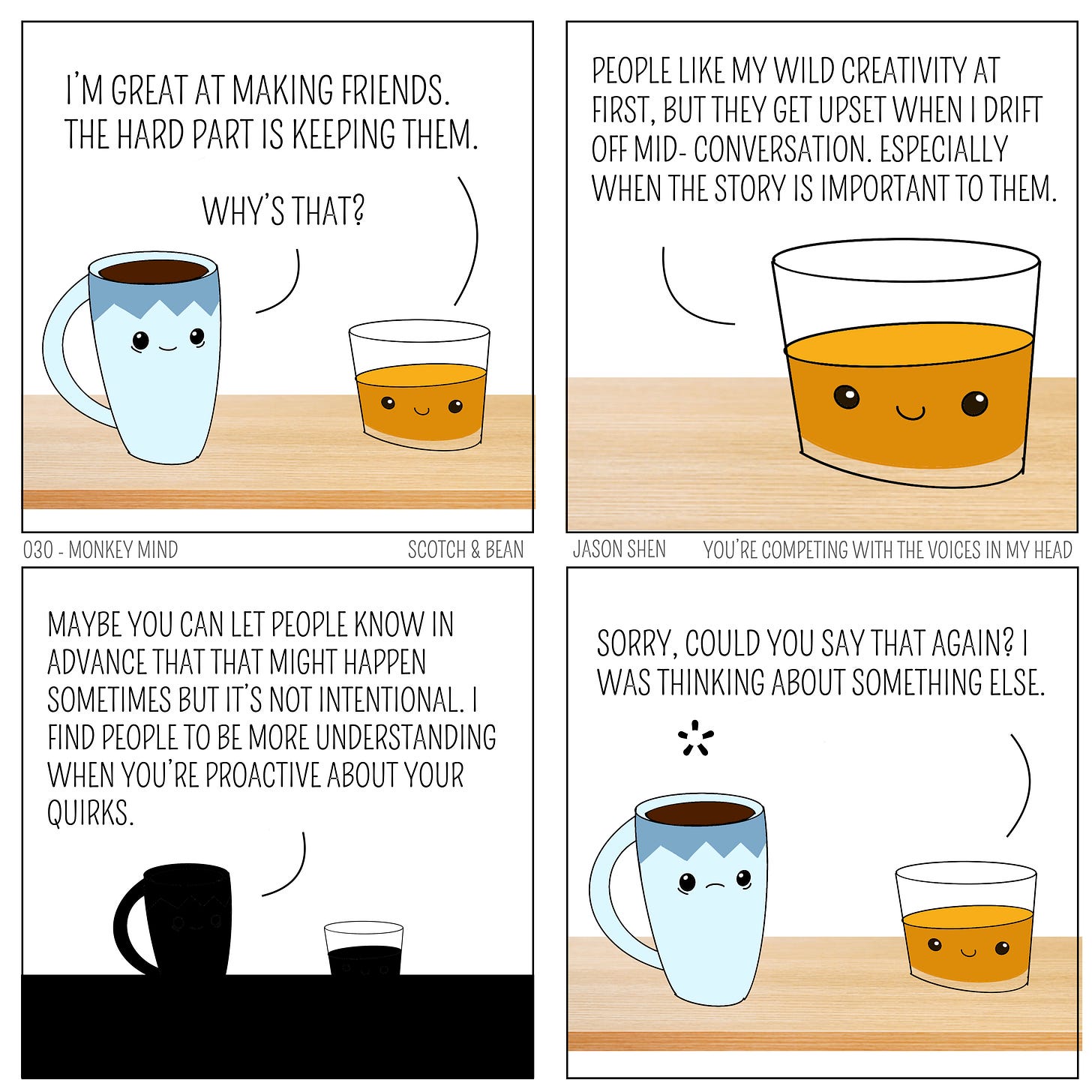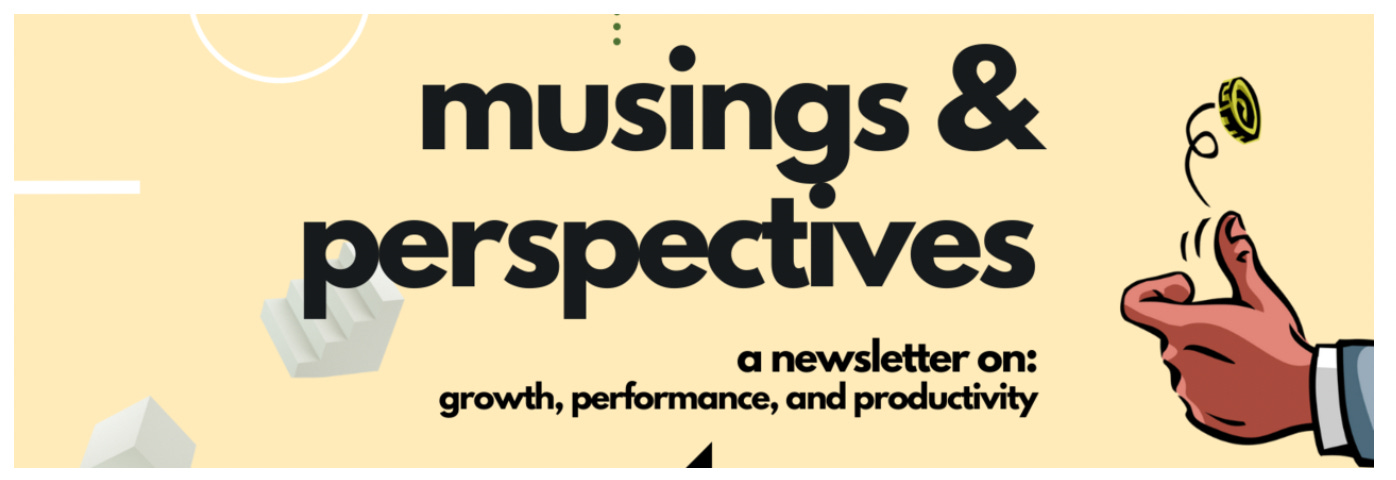This the 75th edition of Cultivating Resilience, a weekly newsletter how we build, adapt, and lead in times of change—brought to you by Jason Shen, a PM, resilience coach, 1st gen immigrant, ex-gymnast, and 3x startup founder
Hey friends—I’ve been experimenting with taking Friday’s off every couple of weeks to give myself a four work-week. If you have “unlimited” vacation or generous PTO I highly recommend giving this a shot. I use the Fridays to decompress, run errands, take calls, and do some side project work so that my weekends are truly more relaxing. Hope your weekend is a good one.
-Jason
PS: Is there a way to make a full-time salary without working full-time? My answer
🧠 How to Ask for Help (According to Science)

I recently listened to a podcast featuring Columbia professor Heidi Grant, author of Reinforcements - How to Get People to Help You. Grant’s previously written about
Rejection activates the same part of the brain as physical pain.
So if I drop a hammer on my toe, there's a part of my brain that's registering that it was my toe that I just dropped it on and not get up, not my, not my hands or my knee, but there's another part of the brain for brain nerves called the dorsal anterior singular cortex, and it processes the experience of pain when people experience exclusion.
Apparently teens who take Tylenol every day for 2 weeks also reported feeling less pain of social stigma. Not saying that's a good idea but it underscores the similar pathways.
We underestimate how much people are willing to help.
But the transformation that people come into these studies—they absolutely hate it when they find out what they're going to be asked to do. And then they do it and they leave with this wonderful rosy glow from realizing that people are really nice and actually much more helpful than they thought they were going to be in.
In this particular experiment participants had to ask strangers to fill out a form. They estimated that only 25% of people who stop and help, but closer to 50 or 60% did (more than 2x).
Don't offer an exchange or immediate repayment when asking for help as that can make it feel like a transaction.
You can actually damage someone's intrinsic motivation by offering rewards or exchange. And this is what's basically happening with helping. When I offer you a reward for helping me, I'm changing the nature of your motivation in such a way that now it's not because you just want to, and it turns out when it comes to helping, that really matters because it's that feeling of I'm doing this because I want to, that leads helping to be such a rewarding thing for people to do.
I have to remember this one myself because I often want to "repay their kindness" somehow when someone helps me out, but it needs to not feel like an exchange.
Asking for help is also important because people often don't want to step in without being asked specifically.
People often feel very reluctant to offer help when it hasn't been asked for, because they don't want to offend you. I mean, if you've ever seen someone get a little testy, when you offer them help that they didn't actually need or want, right. Because they wanted to do whatever it was they wanted to do with themselves. That's a very real. We need to also make sure that the person who you want to help you understand that they specifically are the ones that you want help from.
This makes a ton of sense. Someone recently at worked asked me for help and I was glad to talk with them. I could sense that they might be struggling but didn't necessarily want to offer help presumptuously.
Someone who rejected you before might be more willing to help at a later date.
Not only should you not avoid those people, you should actually seek them out because people who have rejected your request for help in the past are actually much more likely to help you, not less. And it's for the same reason that I talked about earlier, when you say no to someone, even when you just ignore their request for help, which is essentially a no, it feels terrible. Not only do you feel bad about not offering the health that they're asking for, but also that you may damage the relationship to the extent that there is one as well. So usually what happens is people jumped at the chance to help to make up for not having helped you in the past and to repair that relationship a bit.
Grant had asked someone for a book blurb and never heard back, which was a bit of a bummer. And when she was working on her next book, she almost didn't ask again, but her publisher encouraged her to. And this time the guy came back with a super effusive blurb. It turns out the previous request came at a pretty difficult time in the guy's personal life and he didn't have the bandwidth to even respond and felt bad about it.
Let people know how their help will (and ultimately does) impact you
One of the really unfortunate things that happens quite a bit when it comes to letters of recommendation, is that probably about 80% of the time—what happened? I didn't know if they got into the program they wanted to get into, whether or not my help had landed. Was it helpful? It's de-motivating, if I'm going to go to all this trouble and I don't even know whether or not anything happened. We professors love it when we just get that quick note from somebody who lets us know that, after all the decisions have been made, that his is the program they got into or this is what they ended up deciding to do. It's in that moment when you feel really good about helping because you actually had that moment of impact.
I think we all intuitively understand this but it's a great reminder to actually go and tell people how they've helped you. And that building a reputation of doing that will make people more likely to help you.
🖼 Scotch & Bean 030 - Monkey Mind

👉 Musings & Perspectives (newsletter)

I’m a big fan of Andrew Yeung’s newsletter Musings & Perspectives. He’s a Business Planning and Operations Lead at Facebook and I’ve gotten to know him personally over the last year. His writing explores strategies for accelerating career growth, mental models for improving performance, and includes a lot of good links for additional reading plus profiles of interesting people. If you sign up, you might see an interview in the near future with someone you recognize. =)
Some of my favorite posts of his:


Like this edition of Cultivating Resilience? Help me reach more people who could use these ideas by sharing it!


